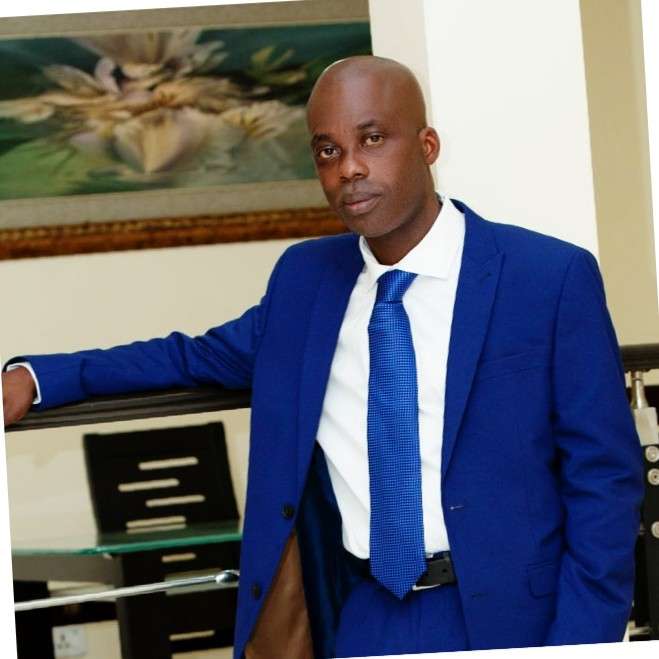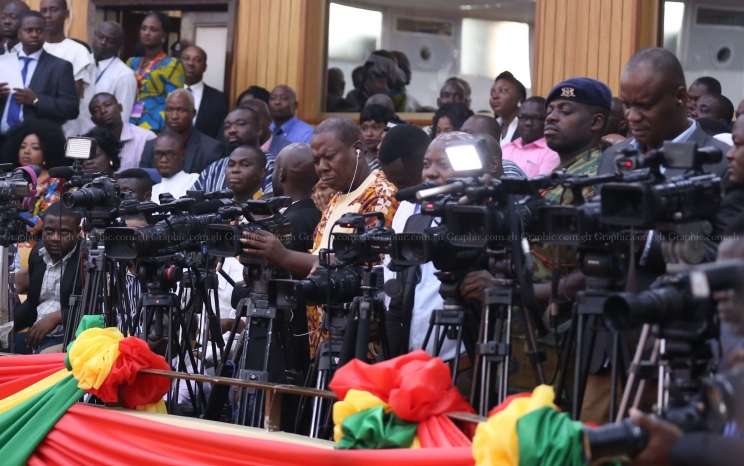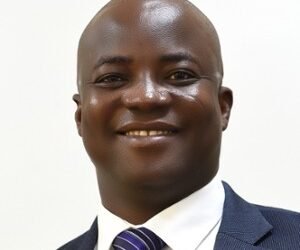Dr Kwame Asiedu Sarpong, the Democracy and Development Fellow at Ghana Centre for Democratic Development (CDD-Ghana) has called on journalists in the country to demand transparency and accountability from political leaders ahead of the December 7 general elections.
The renowned pharmacist in an enlightening discourse underscored the indispensable function of journalists as the guardians of truth and accountability in the realm of public health.
Dr Sarpong also underscored the profound implications of political manifestos, particularly in the realm of healthcare, where decisions made during an election year can significantly impact public well-being.
He emphasized that journalists stand as the vanguards of truth, wielding their pens and microphones to scrutinize policy proposals and hold policymakers accountable.
“In this essay, we embark on a journey to unravel the indispensable role of journalists as the fourth estate in teasing out the complexities of the health conversation amidst electoral fervour.
“With a focus on key health policy areas such as health expenditure, abandoned projects, human resources, work tools, and the pursuit of Universal Health Coverage (UHC) by 2030. We aim to explore how journalists can serve as catalysts for informed decision-making and champions of public health”
Dr Kwame Asiedu Sarpong
Central to Dr Kwame Asiedu Sarpong’s argument is the critical issue of health expenditure per capita and its implications for investments and outcomes.
He stressed that while increasing health expenditure per capita is commendable, prudent planning and transparency are essential to ensure that proposed health policies can be effectively implemented.
Given the above, the Ghana Centre for Democratic Development (CDD-Ghana) Research Fellow urged journalists to delve into political party manifestos, identify major cost centres, and interrogate political leaders on funding mechanisms.
Furthermore, Dr Kwame Asiedu Sarpong tasked journalists to interrogate the complexities of healthcare costs, shed light on historical allocation patterns, and scrutinise current expenditure priorities.
He argued that in carrying out such tasks, journalists in the country would empower citizens to demand transparency and accountability from policymakers, thereby directing healthcare investments towards initiatives that yield tangible health benefits.

Abandoned Health Infrastructure Projects
Dr Sarpong also highlighted the prevalence of abandoned health projects in the country, attributing them to bureaucratic inefficiencies, political interests, and mismanagement.
Here, he called upon journalists to conduct investigative journalism, exposing systemic failures and advocating for reforms in project management and procurement processes.
Describing journalists as the torchbearers of accountability, Dr Sarpong further urged journalists to take responsibility to unravel the tangled web of abandoned health projects and the consequent losses incurred whilst trying to ascertain if the proposed policy direction will not suffer a similar fate.
He emphasized that by amplifying the voices of affected communities and shedding light on the human toll of abandoned projects, journalists would catalyze public discourse and demand corrective action from policymakers.
Moreover, Dr Kwame Asiedu Sarpong cautioned against the politicization of health discussions, urging journalists to remain committed to truth, transparency, and accountability.
He particularly underscored the need for journalists to navigate through the rhetoric and ensure that political leaders prioritize public health over political gains, stressing that journalists must serve as champions of public health, advocating for evidence-based reforms and safeguarding the well-being of society.
“These professionals of the fourth estate must realize that a poor-functioning health system is a danger to themselves and the public.
“They must not shy away from the sad truths of system failure, poor prognosis, the fear of vitriol and possible danger to their person and allow politicians to use health as a vote driver when their intentions are not mapped out to improve the health and wellbeing of the citizens. They must also guard against political players turning health discussions into cheap points scoring and equalization”
Dr Kwame Asiedu Sarpong
The renowned Pharmacist concluded his remarks by calling upon journalists in the country to uphold their role as bearers of truth, utilizing their platforms to safeguard the health and well-being of the Ghanaian populace.
He emphasized that as the country approaches a critical juncture in its democratic journey, the vigilance and dedication of journalists are more crucial than ever in shaping a healthier and more prosperous future for all Ghanaian citizens.
READ ALSO: Prioritizing Ghana’s Debt Repayment: A Pragmatic Approach for Fiscal Stability























